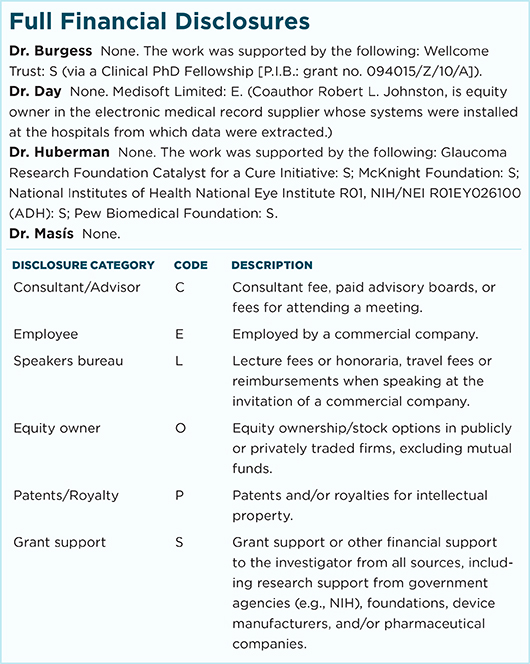Download PDF
Could a drug that is prescribed to treat depression and to aid in smoking cessation also prevent the retinal ganglion cell (RCG) damage that is a hallmark of glaucoma?
This question recently began appearing on research scientists’ radar, thanks to 2 large, population-based studies that identified an association between prolonged bupropion use and the risk of developing open-angle glaucoma (OAG).1,2
Data from 2 studies. The most recent, a cross-sectional study by researchers at the University of California, San Francisco, and Stanford University, used data from the National Health and Nutrition Examination Survey (NHANES). It found that participants who reported using bupropion for more than 1 year had decreased odds of self-reported diagnosis of glaucoma compared with those who did not use bupropion (adjusted odds ratio, 0.10; 95% CI, 0.01-0.81; p = .028).1
In the earlier study, researchers who examined a decade of data from a large managed care network reported that each additional month of bupropion use was associated with a 0.6% reduced risk of open-angle glaucoma (hazard ratio [HR], 0.994; 95% CI, 0.989-0.998; p = .007). Compared with nonusers, those patients who took bupropion for 24 to 48 months were 21% less likely to develop OAG (HR = 0.79, CI: 0.65-0.94, p = .0099).2
If bupropion does eventually prove to protect RGCs, the mechanism would likely be by blocking production of an apoptotic molecule, tumor necrosis factor, said Marissé Masís, MD, a UCSF glaucoma research fellow and lead author of the recent NHANES-based study. But further basic and clinical studies are needed, she added.
Opening a door to research. The authors emphasized that the study showed only association, not causation. “It is too early to think of this as a possible treatment to prevent progression, but it opens the possibility in the future,” Dr. Masís said.
Currently, a large prospective clinical trial is being planned to examine the possible neuroprotective effect of statins in glaucoma patients, and that might eventually occur for bupropion, too, she said. “Whatever we can find to help combat glaucoma, other than lowering IOP, will be a big step,” she said.
—Linda Roach
___________________________
1 Masís M et al. Br J Ophthalmol. Published online June 28, 2016.
2 Stein JD et al. PLoS One. 2015;10(4):e0123682.
___________________________
Relevant financial disclosures—Dr. Masís: None.
For full disclosures and disclosure key, see below.

More from this month’s News in Review